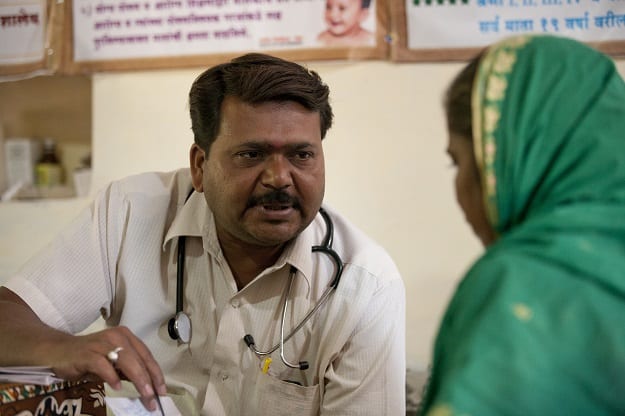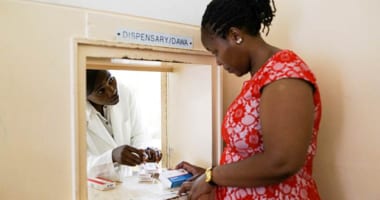Novartis recruits and trains locals in remote Indian villages to inform communities about health, disease prevention, and treatment.
Good health yields high returns on investment – both from a human and economic perspective – because good health reduces poverty and supports economic development. With the UN’s adoption of the new Sustainable Development Goals (SDGs), the link between health and sustainable development is more relevant than ever.
Acting on the magnitude of the world’s global health and development challenges requires collaboration between many actors in society, including the private sector. To shed light on the role of healthcare companies, Novo Nordisk’s TBL Quarterly has asked three industry peers how they are contributing to sustainable development through their businesses and who they are collaborating with to improve health.
Here is another interview with Charlie Hough, Vice President and Global Head of Strategy, Corporate Responsibility, Novartis:
TBL QUARTERLY: Why are the SDGs relevant for Novartis and how can you contribute to them?
HOUGH: SDG number 3 ‘Ensure healthy lives and promote wellbeing for all at all ages’ and 17 ‘Strengthen the means of implementation and revitalise the global partnership for sustainable development’ are two goals of particular interest to Novartis.
Some of our most significant access to healthcare initiatives up until now have focused on communicable diseases, such as malaria and leprosy where we have worked with others to make a significant impact on these diseases. In the future, we believe we can do more to contribute with partners to the reduction in mortality from noncommunicable diseases.
Could you mention an example of an initiative that drives your business while also creating value to society?
One of the Novartis Social Ventures launched in 2007 is Arogya Parivar (‘healthy family’ in Hindi). In India, 830 million people live in rural areas and an estimated 65% of the total population does not have access to healthcare. Novartis recruits and trains locals in remote villages to become ‘health educators’, who help inform communities about health, disease prevention and the benefits of seeking timely treatment. Health supervisors serve as the initiative’s local sales force. They interact with local pharmacies and collaborate with doctors to organise health camps where villagers can receive diagnosis, treatment and preventive care.
The venture’s product portfolio consists of both pharmaceutical and generic medicines to treat conditions ranging from tuberculosis and diabetes to pain and cold relief and dietary supplements. Arogya Parivar is a commercially viable programme – it began returning a profit after 30 months and since 2007, sales have increased 25-fold. This means that the initiative is sustainable, and Novartis has created similar initiatives in Kenya, Indonesia and Vietnam.
How do you as a private sector company work together with other actors in society?
Partnerships are essential to address access to healthcare as no single actor can solve all of the issues. One specific example of a partnership is our ‘SMS for Life’ initiative, which is a public-private initiative that harnesses everyday technology to eliminate stock-outs and improve access to essential medicines, such as anti-malarial treatment, in sub-Saharan Africa.
It started out as a pilot study undertaken through a partnership between Novartis, the Roll Back Malaria Partnership, IBM, Vodafone and the Ministry for Health of Tanzania. Now we are in the process of expanding SMS for Life in several ways. In Ghana, together with the Novartis Foundation and Microsoft, we are piloting a Windows-based smartphone app, ‘eBloodBank’, to track blood supplies for 20 hospitals in the greater Accra region. If the pilot is successful, we will deploy to all 220 hospitals across the country.
What is needed for businesses to create greater health impacts in the future?
It’s about two things essentially: 1) expanding shared value initiatives to reach further down the income pyramid in both developed and developing countries to address the two billion people who don’t have access to health-related products today, and 2) developing new partnerships with governments, NGOs and other actors to address the many issues that prevent greater access to health.
More interviews in this issue:
- Gary Cohen, BD: “Good health is a prerequisite for sustainable development”
- Derek Yach, Vitality: “Health is a leading measure of development failure or success”




